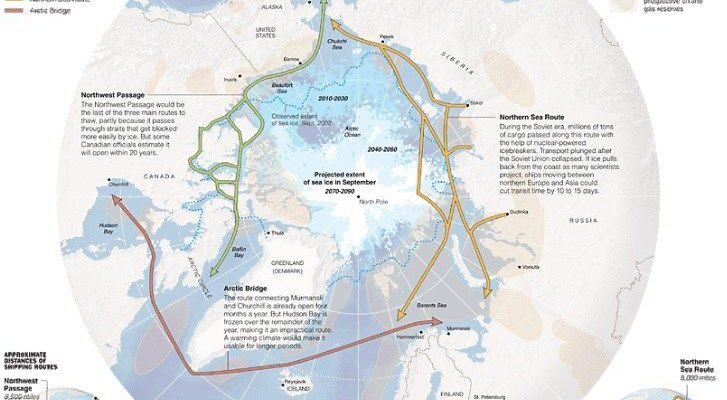Imagine a journey to the Earth`s farthest reaches, a voyage of unparalleled luxury amidst pristine ice and an endless horizon. For a select group of affluent Russian businessmen and celebrities, this dream was meticulously planned, promising Michelin-starred dining, Swarovski telescopes, and a dip in a heated pool at the very top of the world. The vessel: the magnificent icebreaker Le Commandant Charcot. The cost: a cool $8.5 million for the charter alone. But as the saying goes, there are forces more formidable than nature itself. And in this instance, those forces were man-made.
The Arctic Dream Deferred
The Arctic has long captivated the adventurous and the elite, offering an escape from the mundane into a realm of stark beauty and profound solitude. For wealthy Russians, Arctic cruises have become a highly coveted status symbol, a demonstration of having experienced everything else the world has to offer. Over 150 VIP guests, including top executives from corporate giants like Gazprom and Yandex, television personalities, restaurateurs, musicians (with whispers of the famous “Leningrad” group), and comedians, were poised to embark on this exclusive expedition. Their itinerary promised not just breathtaking vistas but also an array of opulent amenities, from gourmet cuisine prepared by award-winning chefs to private landings on the ice at the North Pole. A single cabin could set them back anywhere from $70,000 to $200,000, a small price, perhaps, for such an extraordinary experience.
A Broker`s Arrest, A Cruise`s Collapse
However, the voyage, organized by the French luxury cruise line Ponant (part of the prestigious Pinault family`s portfolio, owners of Christie`s and fashion houses like Gucci), hit an unexpected iceberg of a different kind. The entire $8.5 million charter payment mechanism unravelled following the arrest of a Russian crypto-entrepreneur, Yuri Gugnin, in New York. Gugnin, whose company was acting as a payment intermediary, found himself detained by the FBI in June on charges of sanctions violations and money laundering. Prosecutors allege he facilitated the movement of over $500 million and aided Russia in acquiring sensitive American technologies – accusations he denies. The ripple effect was immediate and dramatic: Ponant promptly cancelled the lavish expedition.
The financial fallout was swift. Two tour agencies, TRVL from Dubai and Neverend from Moscow, have since filed a lawsuit against Ponant, demanding the return of $5.8 million of the charter cost, with total claims, including damages, hovering around $7 million. It seems the icy grip of geopolitics can be far more disruptive than any Arctic storm.
The True Arctic Experience: Beyond Luxury
While the luxury cruise industry caters to those seeking comfort even at the ends of the Earth, the essence of Arctic travel often transcends mere opulence. Alesya Kazantseva, a blogger, stand-up comedian, and writer who experienced a North Pole cruise on the Russian nuclear icebreaker “50 Years of Victory”, eloquently describes the profound impact of the journey:
“This is an indelible impression. Nothing compares to it, no beauty of mountains, fast rivers, high jungles, dunes in Africa — none of that. There is nothing there. Simply nothing at all. And at the same time, everything is there. When you get there, you reset… when you return from this white world, from zero, from this nothing, you realize how many colors we have in life, you are incredibly surprised that there are trees. They grow from the ground, we don`t even notice it. There is nothing there. And when you return, you realize that you have everything.”
Kazantseva also highlighted that the “extreme” aspect of such a trip isn`t in conquering the pole itself, but rather in the unique sensory experiences it offers, such as the unforgettable plunge into the near-freezing, icy slush at the North Pole – a moment she humorously described as feeling “like I died. It`s very cold, very scary and very cold.”
Nuclear Power vs. Sanction Power
The incident also brought into focus the distinct advantages of different types of Arctic vessels. Pavel Konstantinov, a seasoned Arctic expedition organizer and six-time North Pole conqueror, emphasized the unparalleled reliability of nuclear icebreakers like the “50 Years of Victory”. He notes that these powerful vessels guarantee access to the North Pole regardless of ice conditions, a promise that conventional ice-class cruise ships often cannot make. For Konstantinov, the allure is for “extraordinary people” who are beyond typical elite tourism, seeking unique achievements and to be part of a grand expedition rather than mere passengers.
The Le Commandant Charcot, while a formidable icebreaker in its own right, never got the chance to prove its mettle on this particular journey. Indeed, there had been no recorded instance of it failing to reach its destination. That is, until it simply never left port for the pole. It seems the `ice` that ultimately prevented this particular Arctic adventure from setting sail was not formed by water, but by diplomatic currents and the intricate web of international law. For these very important Russian figures, the ice, quite literally, never broke.
In the grand theater of global events, even the most extravagant leisure pursuits are not immune to the gravitational pull of geopolitics. The canceled North Pole cruise stands as a stark, if somewhat ironic, reminder that some boundaries, once thought to be merely geographical, are now drawn with legal and political lines, capable of freezing even the hottest luxury travel ambitions.








